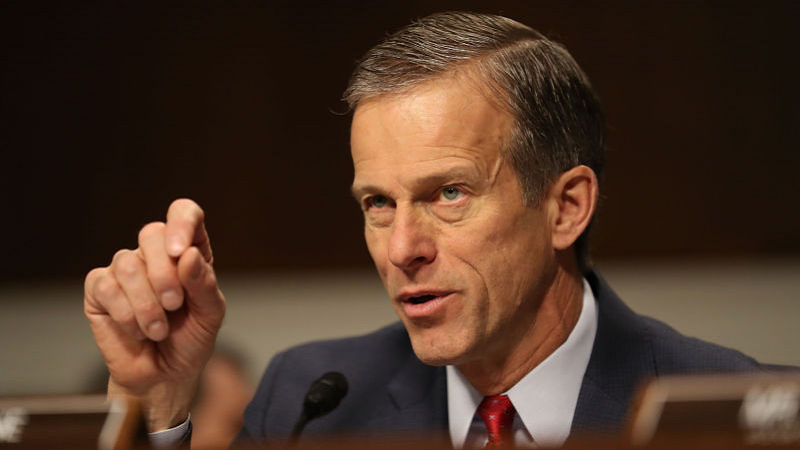
Senate Minority Whip John Thune, R-S.D., is actively working to introduce a “light touch” artificial intelligence bill that would aim to protect both consumers and entrepreneurs, a Senate source familiar with the legislation confirmed to MeriTalk.
Sen. Thune is “determined” to have his AI legislation “be a bipartisan product,” the Senate source said, with plans to introduce the bill “sooner rather than later.”
“Sen. Thune is working on a light-touch AI bill that would help set some basic rules of the road that both protects consumers and entrepreneurs,” the source said. “He’s continuing to have discussions with his colleagues, but he’s determined to have this be a bipartisan product. He’s interested in a substantive result, not a messaging bill.”
“He’s been working on it for several months, but there isn’t a deadline for introduction – he’ll introduce when it’s ready,” the source continued, adding, “His goal is to introduce sooner rather than later.”
Work on the AI bill was first reported in July by Axios.
Thune’s bill focuses on self-certification with risk-based guardrails compared to licensing, since it would create fewer bottlenecks within the Federal government and enable more innovation.
The bill places the brunt of the work on the Commerce Department, requiring the agency to develop and enforce standards to be used for the certification of “critical high-impact” AI – which is defined in the bill as systems that impact biometric identification, management of critical infrastructure, criminal justice, or fundamental or constitutional rights.
Sen. Thune’s legislation calls for self-certification of high-impact AI – systems developed to impact things like housing, employment, credit, education, among others – and generative AI.
The bill places trust in companies self-testing and certifying critical high-risk applications, but Commerce would have enforcement teeth. If noncompliance is discovered, the department could take civil action against the company.
The self-certification aspect of the legislation has some exceptions, including that it exempts platforms that don’t employ more than 500 people or collect personal data of more than one million people per year.
